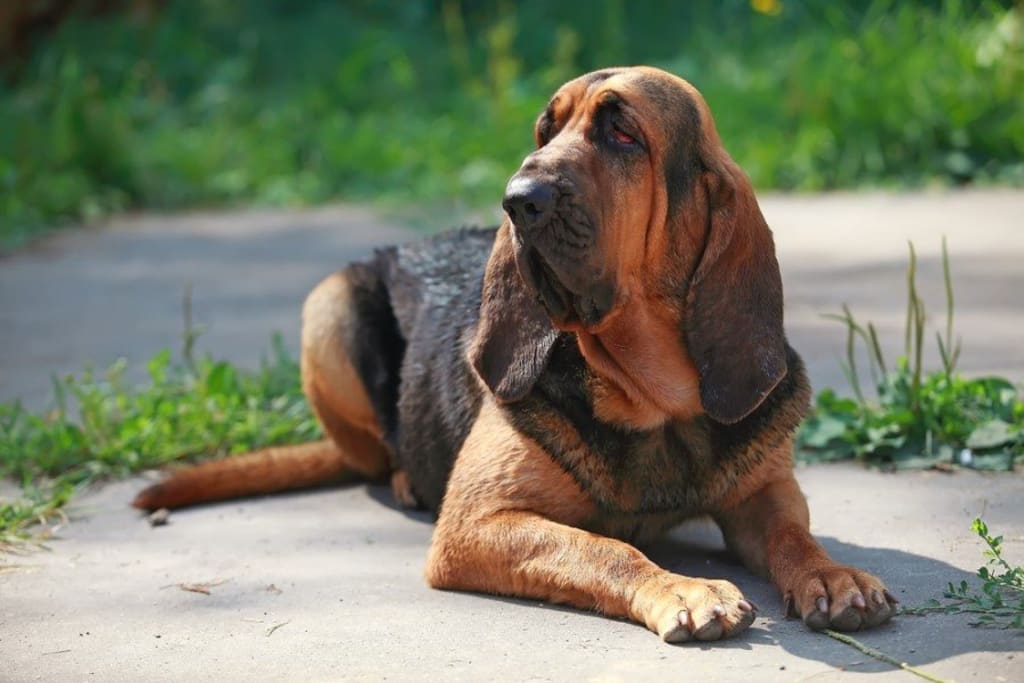
When it comes to dog ownership, loyalty is a trait many owners value. However, it's important to note that loyalty can vary from dog to dog, and generalizing the loyalty of an entire breed may not be accurate. In this blog, we aim to debunk the notion of a "least loyal" dog breed and explore the factors that influence loyalty in dogs.
I. Dispelling Loyalty Stereotypes:
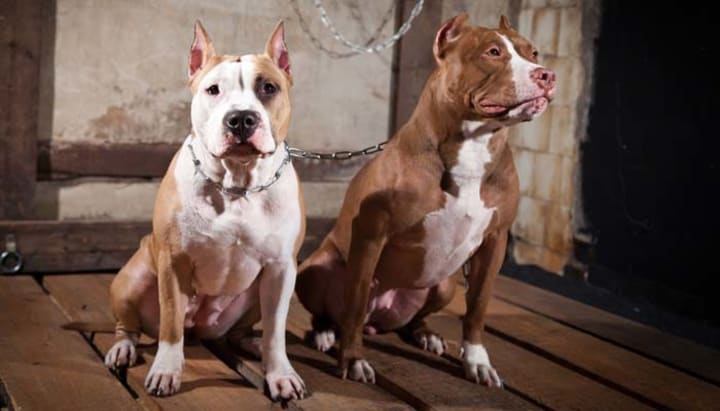
It is essential to understand that loyalty is not solely determined by a dog's breed. Factors such as genetics, individual temperament, early socialization, training, and the bond developed with their owner play significant roles in a dog's loyalty. While some breeds may be known for their loyalty, it doesn't mean that other breeds lack this trait.
When it comes to loyalty in dogs, it is important to dispel the stereotypes associated with specific breeds. Loyalty is a complex trait that cannot be solely attributed to a dog's breed. Instead, it is influenced by a combination of factors, including genetics, individual temperament, early socialization, training, and the bond formed with their owner.
- Genetics: While certain breeds may have been selectively bred for specific characteristics, including loyalty, it does not mean that loyalty is exclusive to those breeds. Genetic predispositions can contribute to certain behavioral traits, but they do not guarantee loyalty in all individuals of a particular breed.
- Individual Temperament: Dogs, like humans, have unique personalities. Some dogs may naturally exhibit more overt signs of loyalty, while others may express it in subtler ways. It is important to recognize and appreciate the individual temperament of each dog, regardless of their breed.
- Early Socialization: The experiences and interactions a dog has during their early development stages significantly impact their behavior and loyalty. Proper socialization, which involves exposing the dog to various people, animals, and environments, can help foster trust, confidence, and loyalty.
- Training: Training plays a crucial role in shaping a dog's behavior and fostering a strong bond between the dog and their owner. Positive reinforcement training techniques, based on rewards and praise, are effective in building trust and encouraging desired behaviors.
- Bond with the Owner: The bond developed between a dog and their owner is a critical factor in determining loyalty. Spending quality time together, providing care and attention, and meeting the dog's physical and emotional needs all contribute to the formation of a strong and loyal bond.
While some breeds may have gained a reputation for being loyal, it is important to recognize that loyalty cannot be generalized to an entire breed. Each dog is an individual with unique characteristics and experiences. The loyalty of a dog should be assessed on an individual basis, taking into account the factors mentioned above.
By understanding that loyalty is not solely determined by breed, we can appreciate and foster loyalty in dogs of all breeds and backgrounds. Building a strong bond, providing positive training experiences, and offering a nurturing environment are key to nurturing loyalty in our beloved canine companions.
II. Factors Affecting Perceived Loyalty:
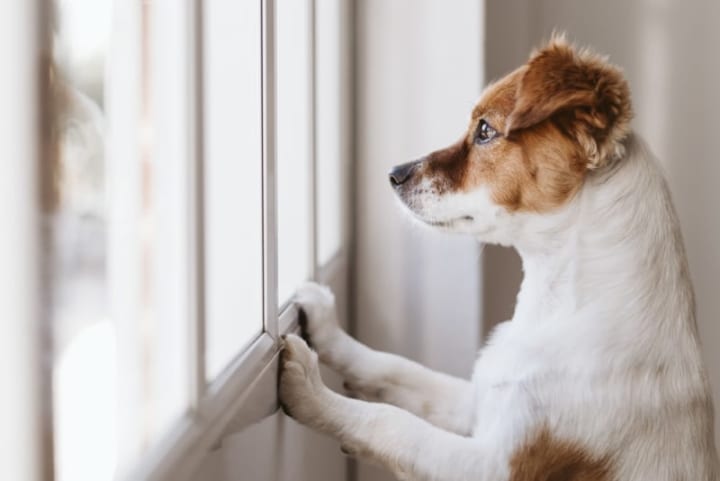
1. Breed Variations: Exploring Loyalty Across Different Dog Breeds
When discussing loyalty in dogs, it's important to recognize that different breeds have been selectively bred for specific purposes throughout history. These purposes may include herding, guarding, hunting, or companionship. As a result, certain breeds may display certain behavioral traits that are associated with their intended roles. However, it is crucial to remember that loyalty is a subjective concept and can be interpreted differently by different individuals.
While some breeds are commonly known for their unwavering loyalty, it's essential to understand that loyalty is not exclusive to specific breeds. Dogs, regardless of their breed, have the capacity to form strong bonds with their owners and exhibit loyalty in their own unique ways. Loyalty is a complex combination of factors that extend beyond breed characteristics.
Individual upbringing, socialization, training, and the bond formed with their owner play significant roles in shaping a dog's loyalty. These factors can have a profound impact on a dog's behavior and the strength of their loyalty, regardless of their breed background. It is the individual dog's experiences, interactions, and the nurturing environment provided by their owner that contribute to the development of their loyalty.
Furthermore, loyalty itself can be expressed differently among various dog breeds. Some breeds may display overtly loyal behaviors, such as constantly staying by their owner's side or being protective, while others may exhibit loyalty in more subtle ways, such as attentiveness, responsiveness, or a strong desire to please. These variations in loyalty expression should not be mistaken for a lack of loyalty.
It's also worth noting that loyalty is a two-way street. Dogs are highly perceptive creatures and can sense the level of care, love, and attention they receive from their owners. Building trust and a mutually beneficial relationship based on love, respect, and positive reinforcement can strengthen the bond and foster loyalty, regardless of breed.
In conclusion, while different dog breeds may exhibit variations in behavior and temperament due to their selective breeding history, loyalty is not solely determined by breed. Loyalty is a subjective concept that can be interpreted differently by different individuals. It is influenced by a combination of factors, including upbringing, socialization, training, and the bond between the dog and their owner. By understanding and appreciating these factors, we can nurture and celebrate loyalty in dogs of all breeds.
2. Individual Differences: Uniqueness in Canine Loyalty
Just as humans have diverse personalities and temperaments, so do dogs. Each dog possesses a distinct set of traits and behaviors that contribute to their individuality, including how they express loyalty. While some dogs may overtly display their loyalty by constantly sticking by their owner's side, others may exhibit loyalty in more subtle ways. Understanding and appreciating these individual differences is key to recognizing and appreciating loyalty in all its forms.
Some dogs have an inherent predisposition to be more attached and devoted to their owners. They may eagerly seek their owner's attention, constantly follow them around, and show unwavering loyalty in various situations. These dogs may be considered more "clingy" or "velcro" dogs due to their strong desire to be in close proximity to their loved ones. Their loyalty is evident in their consistent presence and their willingness to provide comfort and companionship.
On the other hand, some dogs may exhibit loyalty in more understated ways. They may not constantly hover around their owners but instead express their loyalty through attentiveness, responsiveness, and a strong desire to please. These dogs may excel in training and eagerly respond to commands, seeking validation and approval from their owners. Their loyalty is demonstrated through their commitment to following instructions and their eagerness to fulfill their owner's expectations.
It's important to remember that a dog's loyalty is not solely determined by their overt displays of affection or constant proximity to their owners. Loyalty can be deeply ingrained in a dog's temperament and can manifest in various ways depending on their individual personality. Some dogs may express loyalty through protective behaviors, while others may demonstrate loyalty through their unwavering trust and emotional connection with their owners.
Recognizing and understanding these individual differences in loyalty allows us to appreciate the uniqueness of each dog's bond with their owner. It highlights the beauty of the canine-human relationship, where loyalty is expressed in diverse ways that are meaningful and special to both parties involved.
In conclusion, just like humans, dogs possess individual personalities and temperaments that influence how they express loyalty. Some dogs may overtly display their loyalty through constant proximity and attention, while others may exhibit loyalty in more subtle ways, such as attentiveness and responsiveness. Appreciating these individual differences enriches our understanding of loyalty and strengthens the profound bond between dogs and their owners.
3. Environmental Factors: Shaping Loyalty in Dogs
The environment in which a dog is raised and the experiences they have can significantly impact their loyalty. Dogs that are exposed to a positive and nurturing environment, along with proper socialization and training, are more likely to develop strong bonds with their owners. Let's delve into how environmental factors influence a dog's loyalty.
Socialization plays a pivotal role in a dog's development and their ability to form secure attachments. When a dog is exposed to various people, animals, and environments during their critical socialization period (typically between 3 and 14 weeks of age), they learn to navigate the world with confidence and trust. Dogs that receive adequate socialization tend to be more adaptable, open to forming new relationships, and capable of forging strong bonds with their owners.
Positive training methods also contribute to a dog's loyalty. When dogs are trained using reward-based techniques that focus on positive reinforcement and clear communication, they learn to associate their owners with positive experiences. This builds a foundation of trust and mutual understanding, strengthening the bond between dog and owner. Dogs that are trained in a supportive and encouraging manner are more likely to display loyalty as they seek to please their owners and earn their praise and rewards.
Furthermore, the overall nurturing environment in which a dog is raised plays a crucial role in their loyalty. Dogs that receive love, care, and attention from their owners are more likely to reciprocate that love and loyalty. When a dog feels safe, secure, and valued within their environment, they are more inclined to form deep emotional connections with their owners. This sense of security encourages loyalty and a desire to protect and be by their owner's side.
Conversely, negative or traumatic experiences can have a detrimental impact on a dog's loyalty. Dogs that have been subjected to abuse, neglect, or harsh training methods may develop fear, anxiety, or even aggression, which can strain their bond with their owners. It is crucial to create a nurturing and supportive environment for dogs, promoting positive experiences and reinforcing the trust and loyalty between dog and owner.
In conclusion, the environment in which a dog is raised and the experiences they have greatly influence their loyalty. Proper socialization, positive training methods, and a nurturing environment are key factors in developing strong bonds between dogs and their owners. By providing dogs with positive experiences, love, and care, we create an environment where loyalty can flourish, strengthening the profound connection between humans and their canine companions.
4. Personal Relationships: The Foundation of Canine Loyalty
Dogs, like humans, are social creatures that form attachments and bonds based on their individual experiences and interactions. The personal relationship between a dog and their owner plays a significant role in developing loyalty. Let's explore how the quality of the relationship, time spent together, and the care and attention provided contribute to the formation of loyalty.
The quality of the relationship between a dog and their owner is crucial in fostering loyalty. Dogs are highly perceptive animals that can sense the emotions and intentions of their human counterparts. When owners establish a bond based on trust, respect, and mutual understanding, dogs are more likely to reciprocate with unwavering loyalty. This involves consistent and positive interactions, such as spending quality time together, engaging in activities that both enjoy, and providing affection and attention.
Time spent together is a vital factor in building loyalty. Dogs are social animals that thrive on companionship and the presence of their owners. Regular interaction, including playtime, exercise, and simply being in each other's company, strengthens the bond between dog and owner. Dogs value the time and attention given to them, and they often develop a deep sense of loyalty when their owners consistently invest time and effort in their well-being.
The care and attention provided to a dog also influence their loyalty. Dogs are dependent on their owners for their basic needs, such as food, shelter, and healthcare. When owners demonstrate responsible and attentive care, ensuring their dogs are well-fed, groomed, and provided with veterinary care, it establishes a foundation of trust and loyalty. Dogs recognize and appreciate the care and effort put into meeting their needs, strengthening the bond with their owner.
Additionally, the emotional support and understanding shown by owners play a significant role in a dog's loyalty. Dogs are highly attuned to their owners' emotions and can provide comfort and companionship during challenging times. When owners provide a safe and nurturing environment, offer reassurance, and respond to their dog's emotional needs, it deepens the sense of loyalty and strengthens the emotional connection.
In conclusion, personal relationships are at the core of canine loyalty. The quality of the relationship, time spent together, and the care and attention provided all contribute to the development of loyalty. By establishing a bond based on trust, spending meaningful time together, and demonstrating responsible care and emotional support, owners can cultivate a deep and lasting loyalty from their canine companions. It is through these personal relationships that the unique and profound bond between humans and dogs is forged.
III. Promoting Loyalty in Dogs:
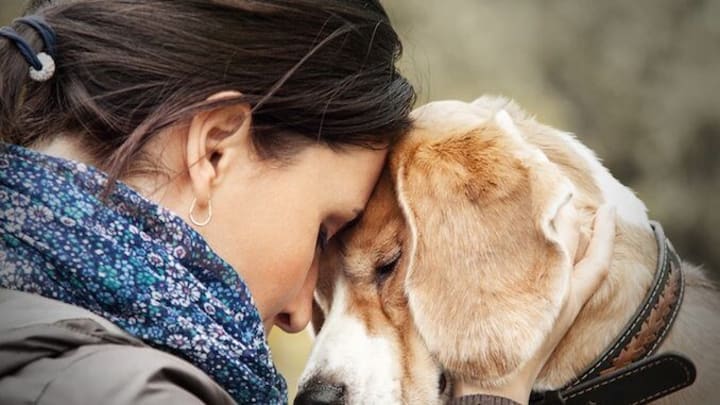
Regardless of breed, there are ways to cultivate loyalty in your canine companion:
1. Building Trust: The Key to Canine Loyalty
Trust is a fundamental element in building a strong and lasting bond with your dog. Establishing trust lays the foundation for loyalty and a harmonious relationship. Let's explore how you can build trust with your canine companion through consistent care, positive reinforcement training, and meeting their physical and emotional needs.
Consistent Care: Providing consistent care is essential for building trust. Dogs rely on their owners for their basic needs, including food, water, shelter, and healthcare. By consistently meeting these needs and establishing a predictable routine, you create a sense of security and reliability for your dog. Regular feeding, proper grooming, and maintaining their health through veterinary check-ups demonstrate your commitment to their well-being.
Positive Reinforcement Training: Positive reinforcement training is a powerful tool for building trust and strengthening the bond with your dog. By using rewards such as treats, praise, and playtime, you can encourage desired behaviors and create a positive learning experience. This approach avoids the use of punishment or harsh training methods that can erode trust and damage the relationship. When your dog understands that their actions result in positive outcomes, they become more willing to trust and cooperate with you.
Meeting Physical and Emotional Needs: Meeting your dog's physical and emotional needs is crucial for building trust. Dogs require regular exercise, mental stimulation, and social interaction to thrive. Providing daily walks, engaging in play sessions, and offering opportunities for socialization with other dogs and people help fulfill their physical and social needs. Additionally, offering emotional support, such as affection, cuddling, and comforting reassurance, strengthens the emotional bond and builds trust.
Consistency and Predictability: Dogs thrive on routine and predictability. Being consistent in your actions, commands, and expectations helps your dog understand what is expected of them and builds trust. Use consistent verbal cues, gestures, and body language when communicating with your dog. This consistency fosters clear communication and reduces confusion, creating a trusting and secure environment.
Patience and Understanding: Building trust takes time and patience. Each dog is unique and may require different amounts of time to develop trust. Some dogs may have had negative experiences in the past that require extra patience and understanding to overcome. Respect their boundaries and provide a safe space where they feel comfortable and secure. By demonstrating patience and understanding, you create an environment where trust can flourish.
In conclusion, building trust is essential for fostering loyalty in your dog. Through consistent care, positive reinforcement training, meeting their physical and emotional needs, maintaining consistency and predictability, and practicing patience and understanding, you can establish a strong foundation of trust. Remember that trust is earned over time, and nurturing this trust strengthens the bond between you and your dog, leading to a loyal and fulfilling relationship.
2. Quality Time: Nurturing Loyalty Through Bonding Activities
Spending quality time with your dog is an essential ingredient in building a strong bond and fostering loyalty. Engaging in activities that your dog enjoys and providing mental and physical stimulation not only deepens your connection but also enhances their overall well-being. Let's explore how quality time can strengthen the bond and encourage loyalty.
2.1. Daily Walks and Outdoor Adventures:
Taking your dog for regular walks and outdoor adventures not only provides physical exercise but also allows for exploration and sensory stimulation. Whether it's a leisurely stroll in the neighborhood, a hike in nature, or a trip to the dog park, these activities create opportunities for you and your dog to bond, experience new environments together, and build trust.
2.2. Interactive Play Sessions:
Engaging in interactive play sessions with your dog is not only fun but also promotes mental stimulation and strengthens the bond. Play games such as fetch, tug-of-war, or hide-and-seek to keep your dog engaged and mentally stimulated. Use toys that challenge their problem-solving skills, such as puzzle toys or treat-dispensing toys, to provide mental enrichment and reward their efforts.
2.3. Training and Learning Sessions:
Training sessions are excellent opportunities to spend quality time with your dog while teaching them new skills and reinforcing existing ones. Positive reinforcement training methods, using treats, praise, and rewards, not only help shape desired behaviors but also create a positive and trusting relationship. Training sessions provide mental stimulation and strengthen the communication between you and your dog.
2.4. Relaxation and Cuddling Time:
Dogs also crave moments of relaxation and affectionate bonding. Set aside dedicated time each day for relaxation and cuddling with your dog. This can involve simply sitting together, petting and stroking them, or providing gentle massages. These moments of quiet connection create a sense of security and deepen the emotional bond between you and your dog.
2.5. Interactive Toys and Games:
Interactive toys and games provide mental stimulation and keep your dog entertained when you're not available to actively engage with them. Offer puzzle toys, treat-dispensing toys, or interactive games that require problem-solving and reward their efforts. These activities keep their minds sharp and provide a positive outlet for their energy.
2.6. Incorporating Your Dog into Daily Activities:
Including your dog in your daily activities helps them feel like an integral part of the family and strengthens the bond. Whether it's going for car rides, having them nearby while you work or relax, or involving them in household chores, these shared experiences create a sense of togetherness and reinforce their loyalty.
Remember, the key to quality time is not just the quantity but the focus and intention you put into these activities. Be fully present and engaged when spending time with your dog, offering them your undivided attention. By providing mental and physical stimulation, incorporating training and learning sessions, and sharing moments of relaxation and affection, you create a rich and fulfilling bond that encourages loyalty.
In conclusion, spending quality time with your dog is an investment in your relationship and plays a crucial role in fostering loyalty. By engaging in activities they enjoy, providing mental and physical stimulation, and incorporating them into your daily life, you create a strong bond based on trust, companionship, and shared experiences. Cherish these moments together and watch as the loyalty between you and your dog grows stronger with each passing day.
3. Positive Reinforcement: Nurturing Loyalty Through Positive Encouragement
Positive reinforcement is a powerful tool in dog training that not only helps shape desired behaviors but also strengthens the bond between you and your furry companion. By using rewards, praise, and affection, positive reinforcement techniques create a positive learning environment and encourage loyalty. Let's delve into the benefits and strategies of positive reinforcement in nurturing loyalty.
3.1. Rewards:
Rewards, such as treats, toys, or access to activities your dog enjoys, serve as motivators to reinforce desired behaviors. When your dog exhibits a behavior you want to encourage, promptly reward them with a treat or praise to associate the behavior with a positive outcome. This positive association encourages your dog to repeat the behavior, fostering a sense of accomplishment and loyalty.
3.2. Verbal Praise and Affection:
Alongside tangible rewards, verbal praise and affection are essential components of positive reinforcement. Use a cheerful and enthusiastic tone to communicate your satisfaction and approval when your dog displays the desired behavior. Affectionate gestures like gentle petting, belly rubs, or verbal reassurances create a positive emotional connection and reinforce the bond between you and your dog.
3.3. Timing and Consistency:
Effective positive reinforcement relies on precise timing and consistency. It's crucial to deliver the reward or praise immediately after your dog exhibits the desired behavior. This helps them make a clear connection between their action and the positive reinforcement. Consistency is key, as it reinforces the understanding that certain behaviors will consistently lead to positive outcomes, further building loyalty.
3.4. Gradual Progression:
Positive reinforcement works best when applied in gradual steps. Start by rewarding small instances of the desired behavior and gradually increase the criteria as your dog becomes more proficient. Breaking the training process into manageable steps allows your dog to understand and succeed, reinforcing their confidence and loyalty.
3.5. Variety in Rewards:
To keep your dog engaged and motivated, use a variety of rewards. Experiment with different types of treats, toys, or activities to find what appeals most to your dog. This variety prevents predictability and adds excitement, making the training sessions enjoyable and reinforcing the bond you share.
3.6. Consistency in Expectations:
Dogs thrive on routine and clear expectations. Be consistent in your training expectations, cues, and rewards. This consistency helps your dog understand what is expected of them and enables them to respond consistently, leading to a stronger sense of loyalty.
3.7. Patience and Positive Attitude:
Positive reinforcement requires patience and a positive attitude. Dogs learn at their own pace, and training takes time and repetition. Avoid punishment or negative reinforcement, as it can erode the trust and bond between you and your dog. Stay patient, remain calm, and maintain a positive and encouraging demeanor throughout the training process.
By employing positive reinforcement techniques, you create a harmonious and cooperative relationship with your dog based on trust, respect, and loyalty. The use of rewards, praise, and affection reinforces desired behaviors, encourages continued learning, and fosters a positive emotional connection. Embrace the power of positive reinforcement and witness how it transforms your training sessions and strengthens the bond you share with your beloved canine companion.
In conclusion, positive reinforcement is a highly effective method for nurturing loyalty in dogs. By using rewards, praise, and affection to reinforce desired behaviors, you create a positive learning environment and foster a strong bond built on trust and positive associations. Embrace the power of positive reinforcement, and watch as your dog's loyalty and devotion to you grow stronger with each training session.
4. Socialization: Cultivating Loyalty Through Exposure and Interaction
Socialization is a critical aspect of raising a well-rounded and loyal dog. By exposing your canine companion to a variety of environments, people, and other animals from an early age, you lay the foundation for their confidence, trust, and loyalty. Let's explore the importance of socialization and how it contributes to fostering a deep bond with your dog.
4.1. Early Exposure:
Introduce your puppy to different sights, sounds, smells, and experiences during their critical socialization period, which typically occurs between 3 and 14 weeks of age. This early exposure helps them become familiar with the world around them, reducing the likelihood of fear or anxiety later in life. Gradually expose them to new environments, such as parks, streets, and public spaces, while providing positive experiences and rewards.
4.2. Positive Interactions:
Encourage positive interactions with people of all ages, including children, adults, and seniors. Expose your dog to a diverse range of individuals, each with their own unique characteristics and behaviors. Teach your dog how to approach and interact politely with strangers, promoting good manners and reinforcing positive associations with human interaction.
4.3. Other Animal Encounters:
Introduce your dog to various types of animals, both within and outside their own species. Arrange controlled meetings with well-behaved dogs and animals of different sizes, breeds, and temperaments. Supervised playdates and interactions with other animals allow your dog to learn proper social skills, develop confidence, and build positive relationships, enhancing their loyalty and trust.
4.4. Training Classes and Social Groups:
Enroll your dog in puppy or obedience training classes that emphasize positive reinforcement and socialization. These classes provide structured environments where dogs can interact with their peers and learn important social cues and behaviors. Additionally, joining social groups or clubs that cater to specific breeds or activities can offer further opportunities for socialization and bond-building.
4.5. Positive Reinforcement:
Use positive reinforcement techniques during socialization encounters. Reward your dog with treats, praise, or play when they exhibit calm and appropriate behavior in different social situations. Positive reinforcement strengthens the connection between socialization experiences and positive outcomes, reinforcing their confidence and trust.
4.6. Gradual Exposure:
Take a gradual approach when exposing your dog to new environments, stimuli, and social interactions. Start with low-stress situations and gradually increase the level of challenge as your dog becomes more comfortable and confident. Avoid overwhelming them with too many new experiences at once, as it can have the opposite effect and lead to fear or anxiety.
4.7. Continued Socialization:
Socialization is an ongoing process that should continue throughout your dog's life. Regularly expose them to new experiences, environments, and social interactions to maintain their confidence, adaptability, and loyalty. Incorporate outings to different places, visits to friends and family, and participation in dog-friendly events to ensure a well-rounded and socially adept companion.
Remember, socialization is not only about exposure but also about creating positive associations and experiences. Ensure that each socialization encounter is pleasant and rewarding for your dog, building their trust in you as their caregiver. By prioritizing socialization, you lay the groundwork for a confident, well-adjusted, and loyal dog.
In conclusion, socialization plays a vital role in developing a loyal dog. Early exposure, positive interactions with people and animals, training classes, and gradual exposure are key elements of effective socialization. By providing varied experiences and positive reinforcement, you nurture your dog's confidence, trust, and loyalty. Embrace the power of socialization, and enjoy the rewards of a happy, well-rounded, and devoted canine companion.
The concept of a "least loyal" dog breed is misleading and oversimplifies the complex nature of loyalty in dogs. Loyalty is influenced by a combination of genetics, individual temperament, training, socialization, and the bond formed with their owner. Every dog is unique, and loyalty should be assessed on an individual basis. By understanding and nurturing the bond between you and your dog, you can foster a strong and loyal relationship, regardless of their breed.
About the Creator
Caninepaw
Welcome to Canine Connection Blog, where we bring together a community of dog lovers


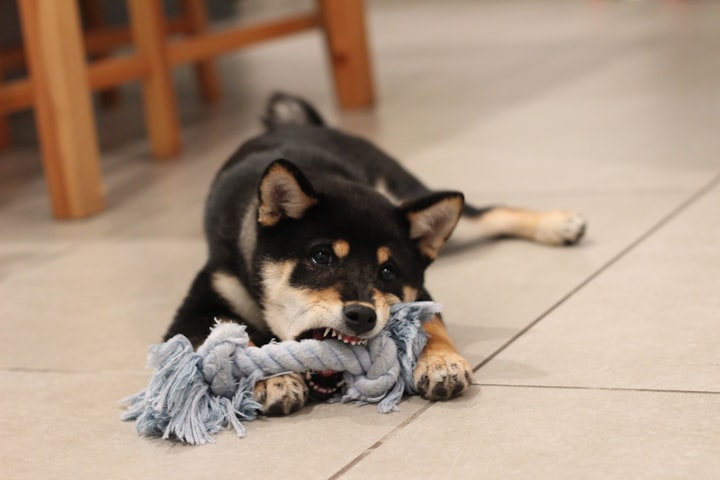



Comments
There are no comments for this story
Be the first to respond and start the conversation.